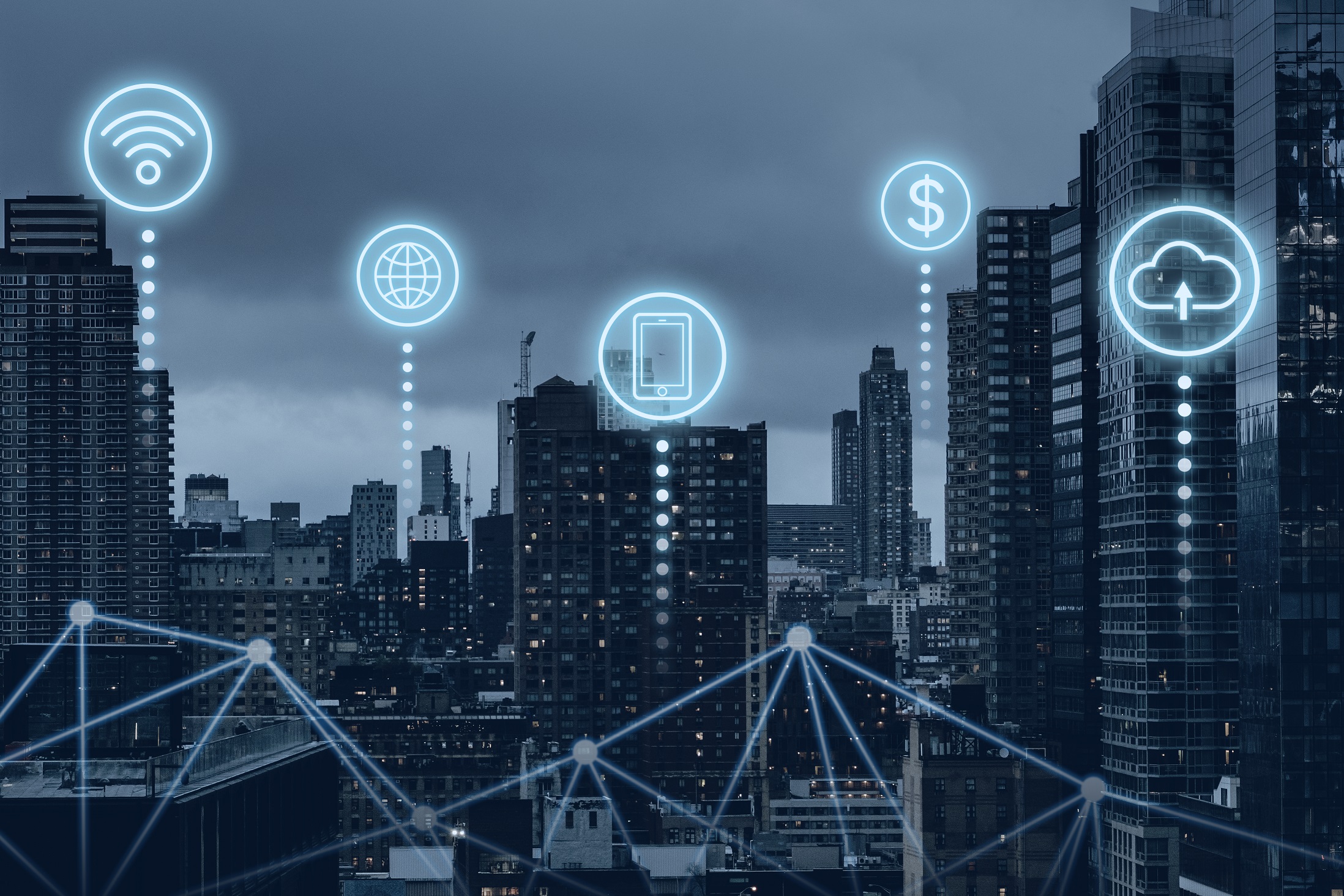Smart city applications help save resources and make life more comfortable for citizens. The most popular services include transportation, medical systems and solutions for public utilities. Singapore, Zurich, Seoul, San Francisco, Copenhagen are constantly in the top list of the most intelligent cities in the world. What smart city services do they use?
1. Singapore
There are almost 6 million people living in Singapore. Because of the small area there are traffic collapses at rush hours. Authorities tried to solve the problem by reducing the number of vehicles and raising taxes. However, actual traffic management efficiency came with a service that analyzes and redirects traffic flows depending on traffic congestion on roads and highways.
A large part of the population is elderly people. To reduce the load on the healthcare system, smart city medical services appeared, which allows people to remotely:
- monitor the condition of patients;
- consult with doctors;
- call a medical team.
2. Zurich.
The municipality reduced electricity consumption by 70% by using smart streetlights that automatically adjust the brightness depending on foot and car traffic. Over time, the lanterns have been equipped with a wider range of sensor technology that:
- act as publicly available WI-Fi antennas;
- measure the volume of street traffic;
- collect environmental data.
3. Seoul.
Like most major cities in the world, Seoul is characterized by a rapidly aging population, some of whom live alone. Their homes are equipped with sensors that record motion, temperature, humidity, and lighting. If the sensors do not register movement or lighting or detect temperature or humidity thresholds breeches, emergency responders contact the residents or go to their place.
4. San Francisco.
City leaders were concerned about cleaning costs rises and the high number of complaints about dirty streets. To reduce costs, it was necessary to:
- reduce the number of overflowing containers;
- optimize their placement;
- improve waste collection routes.
Already during the pilot project to implement the smart city application and install special sensors there was a reduction in the number of illegal dumps by 64% and in the number of requests for street cleaning by 60%.
5. Copenhagen.
Water suppliers are upgrading water networks to prevent water leaks:
- noise meters analyze the sound characteristics of water leaks and report incidents;
- smart valves and pumps collect pressure information and transmit it for processing to the system that regulates pressure and prevents burst pipes and water leaks.
Smart city applications can reduce non-revenue-generating water use to just 4 to 6 percent.
The Internet of Things is helping transform cities and find new solutions to problems that previously required many resources and seemed unsolvable. According to experts in the near future, the most demanded solutions will be those for:
- transportation and logistics;
- energy-efficient buildings;
- increasing the sustainability of cities.
You can read more about Epol Soft’s solutions for smart cities here.
Do you want to estimate budget and terms of Smart City application development? Fill out a checklist here.

